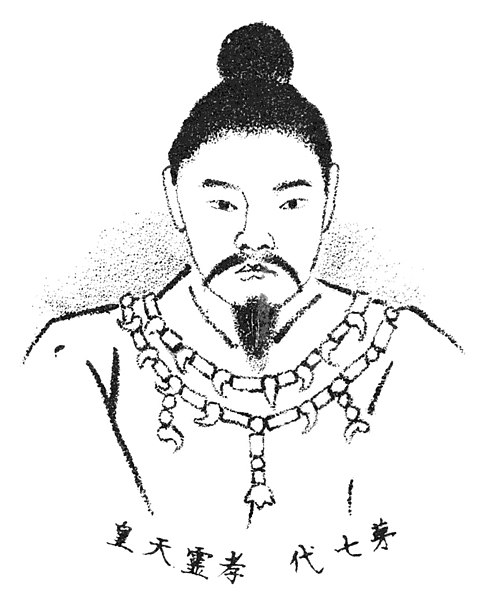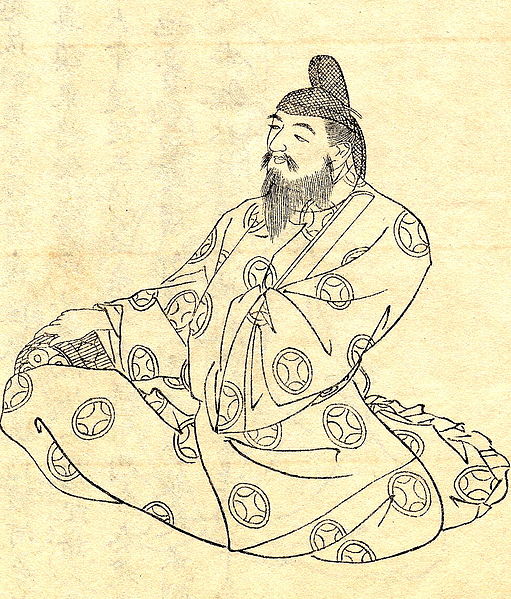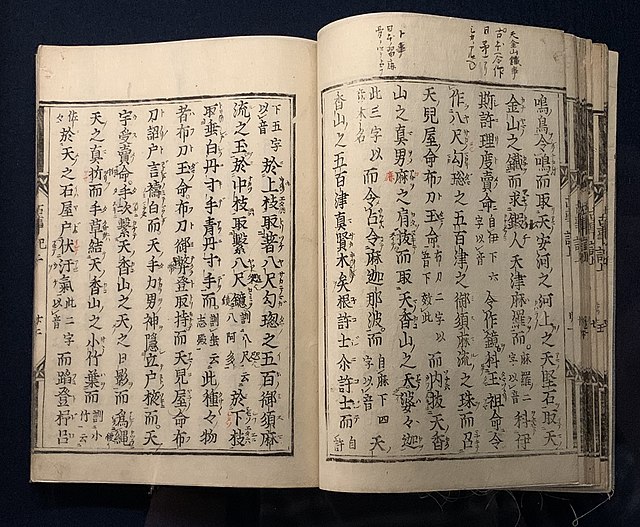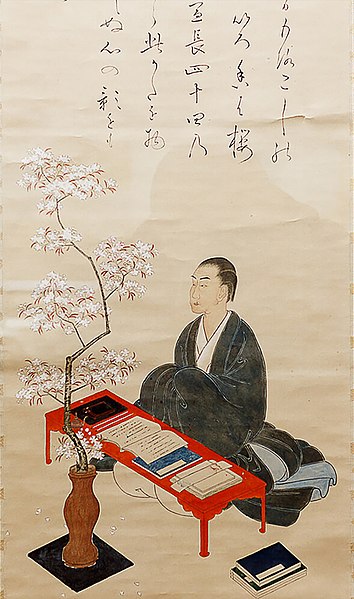Emperor Kōrei , also known as Ōyamatonekohikofutoni no Mikoto (大倭根子日子賦斗邇命) was the seventh legendary emperor of Japan, according to the traditional order of succession. Very little is known about this Emperor due to a lack of material available for further verification and study. Kōrei is known as a "legendary emperor" among historians as his actual existence is disputed. Nothing exists in the Kojiki other than his name and genealogy. Kōrei's reign allegedly began in 290 BC. He had one wife and three consorts with whom he fathered seven children. After his death in 215 BC, one of his sons supposedly became the next emperor. Kōrei is traditionally accepted as the first emperor of the Yayoi period, which is named after the Yayoi people who migrated to the Japanese archipelago from mainland Asia.
Emperor Kōrei
The Kojiki , also sometimes read as Furukotofumi or Furukotobumi, is an early Japanese chronicle of myths, legends, hymns, genealogies, oral traditions, and semi-historical accounts down to 641 concerning the origin of the Japanese archipelago, the kami (神), and the Japanese imperial line. It is claimed in its preface to have been composed by Ō no Yasumaro at the request of Empress Genmei in the early 8th century (711–712), and thus is usually considered to be the oldest extant literary work in Japan.
Portrait of Ō no Yasumaro by Kikuchi Yōsai (19th century)
Kan'ei Kojiki, 1644 (Kokugakuin University)
Kojiki-den by Motoori Norinaga
Motoori Norinaga





